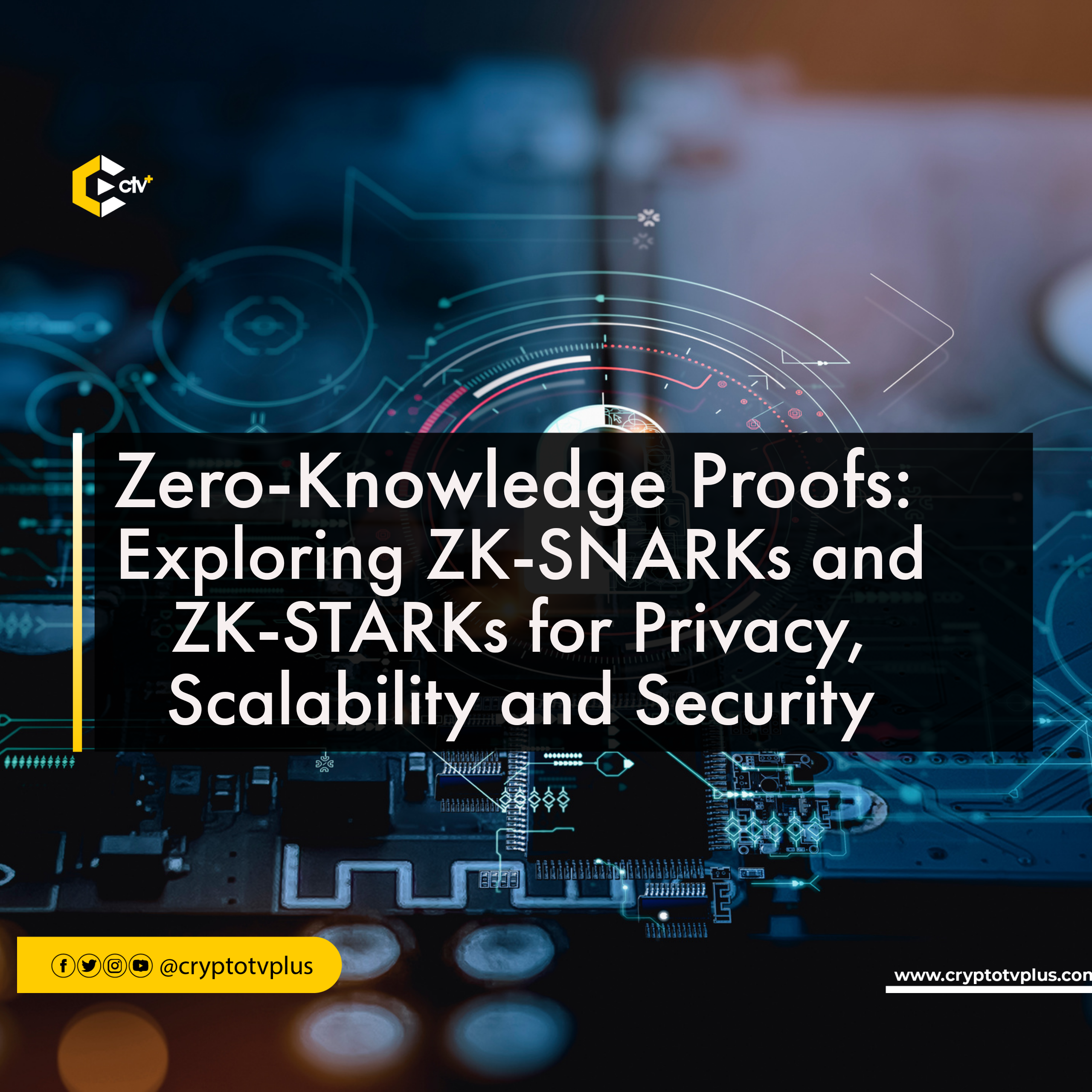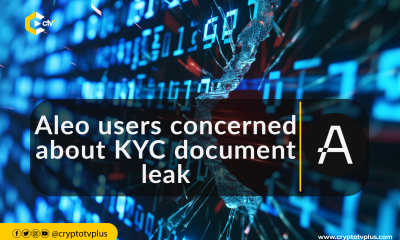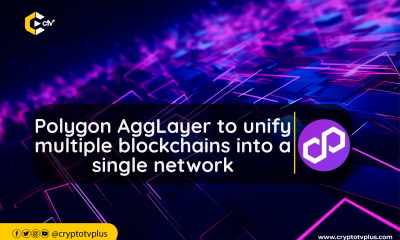Education
Zero-Knowledge Proofs: Exploring ZK-SNARKs & ZK-STARKs for Privacy, Scalability & Security

In the digital age, where data privacy and security concerns are at an all-time high, finding innovative solutions that strike a balance between confidentiality and functionality has become paramount. Hence a reason for zero-knowledge proofs (ZKPs).
ZKP is a revolutionary cryptographic concept that allows one party to prove knowledge of certain information to another party without revealing the actual information itself. This concept has garnered significant attention and acclaim for its potential to transform various fields, including blockchain technology, financial transactions, and data sharing.
In this article, we delve into the fascinating world of ZK-SNARKs (Zero-Knowledge Succinct Non-Interactive Arguments of Knowledge) and ZK-STARKs (Zero-Knowledge Scalable Transparent Arguments of Knowledge), exploring their applications, benefits, and implications for privacy, scalability, and security in the digital landscape.
Zero-Knowledge Proofs
Zero-knowledge proofs (ZK proofs) are mechanisms that allow one party to prove knowledge of information to another party without revealing the information itself. They have been used in privacy-focused blockchains to hide transaction details, but they also have applications in scaling general-purpose blockchains.
ZK-SNARKs
ZK-SNARK is an acronym for Zero-Knowledge Succinct Non-Interactive Argument of Knowledge. It is a specific protocol for generating zero-knowledge proofs to verify the authenticity of information without exposing the underlying data.
In a ZK-SNARK protocol, there are two parties:
- The prover (Alice) and,
- The verifier (Bob)
The prover makes a claim and uses the ZK-SNARK mechanism to produce proof to convince the verifier that the claim is true without revealing the referenced information.
ZK-SNARKs possess several qualities:
- zero-knowledge,
- succinctness,
- non-interactivity,
- being arguments, and
- knowledge.
The verifier only knows the validity or falsity of a statement without learning any other details. The proof is small enough to be verified quickly. The interaction between the prover and verifier is minimal, and there’s no need for multiple message exchanges.
ZK-SNARKs are computationally sound and satisfy rigorous requirements, making it difficult to generate false proofs. SNARK-based proofs cannot be created with access to the underlying information or the witness.
In blockchains, ZK-SNARKs can be used to solve the computational integrity problem. Rather than re-running every transaction, nodes can use ZK-SNARKs to verify the validity of a computation without replaying it. This improves network throughput, reduces confirmation times, and avoids storing excess transaction data.
ZK-SNARKs are particularly relevant in the context of ZK rollups, a Layer 2 scaling solution for Ethereum.
ZK rollups use ZK-SNARKs to prove the authenticity of off-chain transactions to the main chain, enabling increased throughput and scalability while maintaining the security of the main chain. ZK-SNARKs scale throughput by reducing computation on the base blockchain, leading to faster transactions and lower gas fees. The small size of SNARK proofs makes them easy to verify and reduces costs.
There are also downsides to consider.
ZK-SNARKs require a trusted setup, which introduces trust assumptions and can be problematic for decentralized blockchains. They are susceptible to quantum computing attacks if advancements in quantum computing break the security of the underlying cryptographic schemes. Additionally, ZK-SNARKs rely on specialized hardware for efficient proof generation, potentially leading to centralization concerns.
Some notable projects that use ZK-SNARKs include ZKSync, Loopring, Aztec, Polygon Hermez, and ZKSpace. These projects leverage ZK-SNARKs to provide scalability, privacy, and lower costs for transactions on their respective platforms.
ZK-STARKs
ZK-STARK is an acronym for Zero-Knowledge Scalable Transparent Argument of Knowledge. It is another type of zero-knowledge proof. It shares similarities with ZK-SNARKs but has distinct properties.
Unlike, ZK-SNARKs, ZK-STARKs are considered transparent because they can work without a trusted setup and use publicly verifiable randomness instead. They are also scalable, as the proving and verifying complexity scales quasilinearly with computation complexity, unlike the linear scaling in ZK-SNARKs. ZK-STARKs are better suited for applications that handle large volumes of transactions due to their efficient handling of larger computations.
The benefits of ZK-STARKs include:
- zero need for a trusted setup,
- scalability,
- maximum throughput, and
- high-security guarantees
Since it doesn’t require a trusted setup, this eliminates the need for participants to rely on a central authority or assume trust in the setup process. This is seen as a significant advantage in terms of decentralization and security.
ZK-STARKs achieve scalability by utilizing a technique called “polynomial commitments.”
A polynomial commitment is a cryptographic primitive that allows a party to commit to a polynomial without revealing the coefficients of the polynomial. This can be used to prove that a certain value is the result of evaluating a polynomial at a specific point, without revealing the polynomial itself.
Polynomial commitments are used in zk-STARKs to prove the correctness of computations without revealing the input data or the code that was used to perform the computation. This is done by first committing to the polynomial that represents the computation, and then proving that the value at a specific point is the result of evaluating the polynomial at that point.
Polynomial commitments are a powerful tool for proving the correctness of computations without revealing sensitive information. They are used in a variety of applications, including secure voting, fraud detection, and medical research.
Here is an example of how a polynomial commitment can be used to prove the correctness of a computation. Suppose you want to prove to someone that you know the square root of 2. You could do this by first committing to a polynomial that represents the square root function. Then, you could prove that the value at 2 is 1. This would demonstrate that you know the square root of 2, without revealing the polynomial itself.
Polynomial commitments are a complex topic, but they are an important part of zk-STARKs and other zero-knowledge proof systems. Instead of representing the computation directly as a circuit, ZK-STARKs convert the computation into a polynomial form. This allows for efficient handling of larger computations since the size of the proof and the verification process scale logarithmically with the size of the computation, rather than linearly as in ZK-SNARKs.
Moreover, ZK-STARKs also provide maximum throughput by enabling batch verification. Multiple proofs can be verified simultaneously, significantly reducing the time required for verification compared to individually verifying each proof.
Similar to ZK-SNARKs, ZK-STARKs offer high-security guarantees due to the underlying cryptographic techniques they employ. They are resistant to quantum computing attacks and provide cryptographic assurances that the prover cannot create false proofs.
While ZK-STARKs have desirable properties, they also have some limitations. Generating and verifying ZK-STARK proofs can be computationally expensive, requiring significant computational resources compared to ZK-SNARKs. Additionally, the proof sizes in ZK-STARKs tend to be larger compared to ZK-SNARKs, although advancements in the field aim to reduce the size of ZK-STARK proofs.
Several projects and initiatives are exploring the use of ZK-STARKs in various applications. StarkWare, a leading company in this field, is developing a layer 2 scalability solution for Ethereum called StarkEx, which utilizes ZK-STARKs. This technology aims to provide high throughput and scalability while maintaining the security and trustlessness of the Ethereum network.
Conclusion
Zero-knowledge proofs have emerged as groundbreaking cryptographic tool with the power to revolutionize the way we handle sensitive information. As we have witnessed in this article, the development of ZK-SNARKs and ZK-STARKs has paved the way for unprecedented advancements in privacy, scalability, and security. These zero-knowledge-proof systems offer immense potential in various domains, from blockchain technology to financial transactions and data sharing. They empower individuals and organizations to assert their knowledge and integrity without compromising their confidentiality.
While challenges and limitations still exist, ongoing research and innovation in the field of zero-knowledge proofs hold promise for even more efficient and practical implementations. As we move forward in the digital era, embracing these cryptographic marvels will probably help us create a more trustworthy, privacy-focused, and secure environment for the exchange of sensitive information.
























